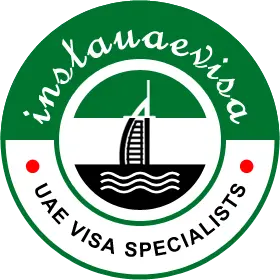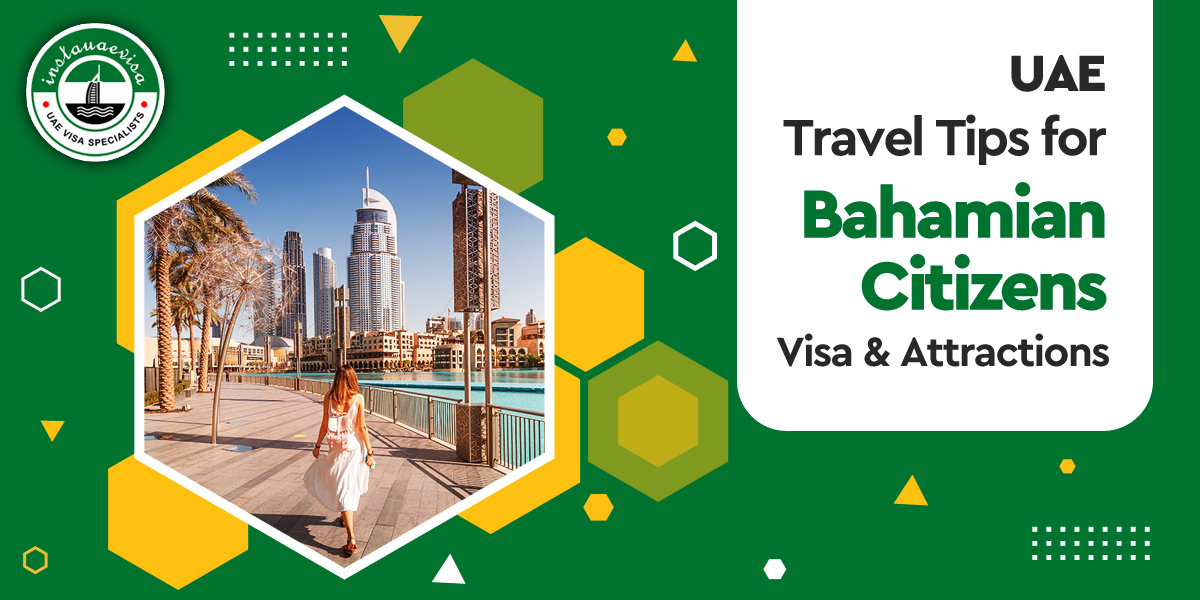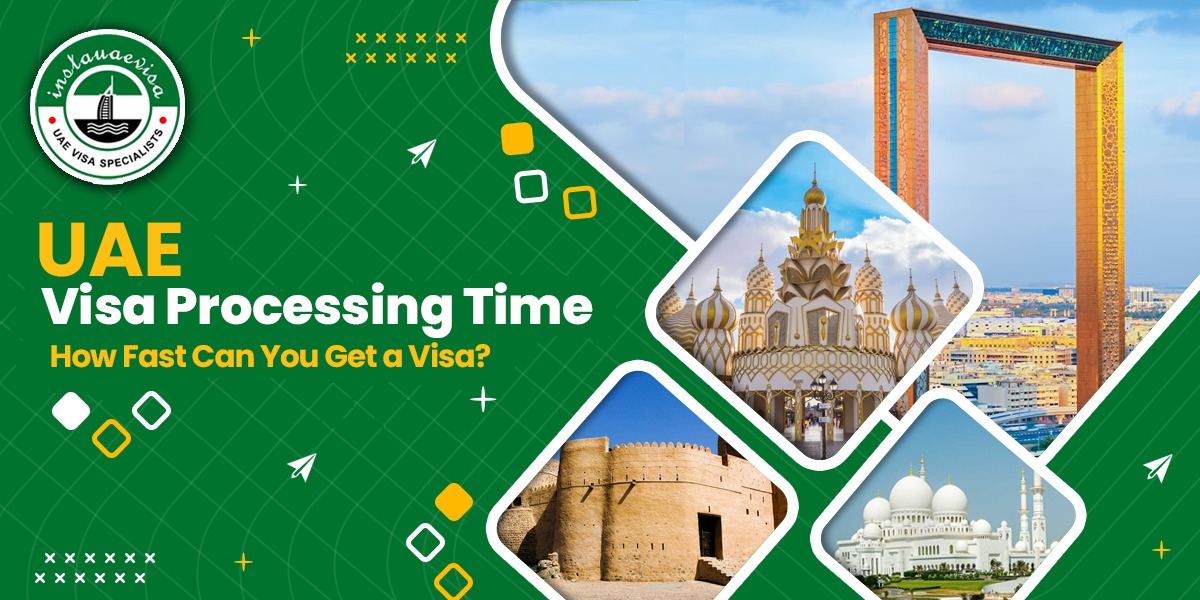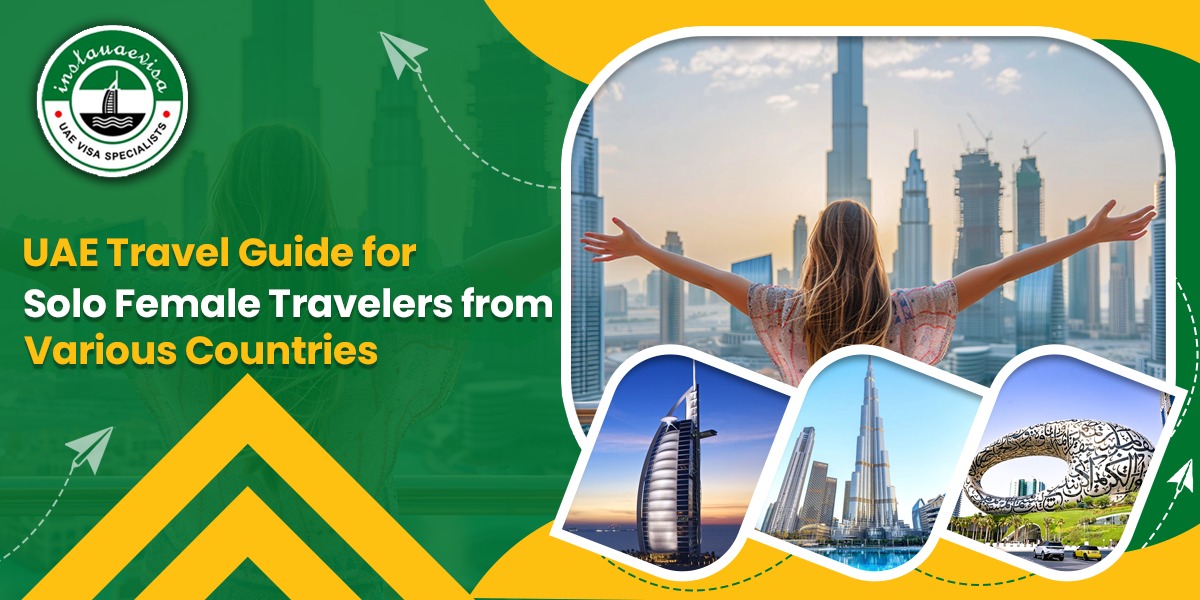The United Arab Emirates (UAE) stands as a testament to human ingenuity and ambition, transforming from a modest desert landscape to one of the world's most captivating destinations in just a few decades. For Bahamian citizens looking to experience this remarkable blend of ultramodern architecture and deep-rooted traditions, the UAE offers an unparalleled travel experience.
With its seven emirates—Abu Dhabi, Dubai, Sharjah, Ajman, Umm Al Quwain, Ras Al Khaimah, and Fujairah—each presenting its own unique character, the UAE promises diverse experiences ranging from serene desert escapes to vibrant urban adventures. This comprehensive guide aims to equip Bahamian travelers with essential information for navigating visa requirements, understanding cultural nuances, exploring premier attractions, and making the most of their Middle Eastern journey.
Visa Requirements for Bahamian Citizens
Bahamian passport holders planning to visit the UAE must obtain a visa before their trip. Unlike citizens from certain countries who enjoy visa-free entry, Bahamians need to complete the necessary visa application process.
Types of Visas Available
Tourist Visa: This is the most common visa for Bahamian visitors planning a vacation in the UAE. Tourist visas are typically valid for 30 days but can sometimes be extended.
Business Visa: For those traveling to the UAE for business meetings, conferences, or professional engagements.
Transit Visa: If you're passing through the UAE with a layover exceeding 24 hours, a transit visa might be necessary.
Application Process
The visa application process for Bahamian citizens involves several steps:
- Gather Required Documents:
- Valid passport with at least six months validity
- Recent passport-sized photographs
- Round-trip flight reservations
- Hotel bookings or accommodation arrangements
- Proof of sufficient funds
- Travel insurance (recommended)
- Application Submission:
- Through a UAE-based sponsor (hotel, tour operator, or business contact)
- Through Emirates or Etihad Airways if flying with these carriers
- Via an authorized travel agency in the Bahamas
- Processing Time:
- Standard processing typically takes 4-5 business days
- Express services may be available at additional cost
Visa Tips for Bahamian Travelers
- Apply well in advance of your planned travel date to allow for any unforeseen delays
- Ensure all documents are accurately completed to avoid rejection
- Keep digital and physical copies of your visa documentation throughout your journey
- Check with the UAE Embassy or Consulate for the most current visa regulations, as requirements may change
Best Time to Visit the UAE
Understanding the UAE's climate is crucial for planning a comfortable trip. The country experiences two distinct seasons:
Winter Season (November to March)
This period offers the most pleasant weather conditions with daytime temperatures ranging from 24°C to 28°C (75°F to 82°F). Evenings can be cooler, particularly in desert areas, so packing a light jacket is advisable. This is considered the peak tourist season, with higher accommodation rates and larger crowds at popular attractions.
Summer Season (April to October)
Summers in the UAE are extremely hot and humid, with temperatures regularly exceeding 40°C (104°F). July and August are particularly challenging for outdoor activities, with temperatures sometimes reaching 50°C (122°F). However, this period offers excellent deals on accommodations and less crowded attractions. The UAE's world-class indoor facilities—from shopping malls to theme parks—provide air-conditioned respites from the heat.
Ramadan Considerations
If your travel coincides with the holy month of Ramadan (which varies each year according to the Islamic calendar), be aware that there are special cultural considerations. During daylight hours, eating, drinking, and smoking in public are restricted. Many restaurants remain closed until sunset, though hotels typically offer dining options for non-Muslims in designated areas. While this period presents some limitations, experiencing Ramadan in the UAE offers unique cultural insights and special evening festivities.
Cultural Etiquette and Customs
The UAE balances modern cosmopolitanism with traditional Islamic values. Understanding and respecting local customs will enhance your experience and prevent inadvertent offense.
Dress Code
While the UAE is relatively liberal compared to some neighboring countries, modest attire is appreciated, particularly in public areas:
- For women: Shoulders and knees should generally be covered in public places. When visiting mosques, women should wear loose-fitting, long-sleeved clothing and bring a scarf to cover their hair.
- For men: Shorts that reach the knee are acceptable in most casual settings, but long pants are preferred in more formal or religious environments.
- Beach and pool areas: Western-style swimwear is acceptable at designated beach and pool areas within hotels and private beaches.
Social Etiquette
- Greetings: A handshake is common, though some Muslims may avoid physical contact with the opposite gender. Following the lead of your Emirati hosts is advised.
- Public behavior: Public displays of affection should be minimal. Hand-holding between couples is generally acceptable, but kissing and embracing should be avoided.
- Photography: Seek permission before photographing local people, particularly women. Avoid photographing government buildings, military installations, ports, and airports.
- Ramadan respect: During Ramadan, refrain from eating, drinking, or smoking in public during daylight hours.
Communication Tips
- Basic Arabic phrases: Learning simple greetings like "As-salaam alaikum" (Peace be upon you) and "Shukran" (Thank you) demonstrates respect for the local culture.
- English usage: English is widely spoken throughout the UAE, especially in tourist areas, making communication relatively easy for Bahamian visitors.
- Business cards: If traveling for business, have plenty available and consider having one side printed in Arabic.
Top Attractions in the UAE
Dubai Highlights
Burj Khalifa Standing at an impressive 828 meters, the Burj Khalifa is the world's tallest building. The observation decks on the 124th, 125th, and 148th floors offer breathtaking panoramic views of Dubai's skyline. For the best experience, book tickets in advance and consider visiting during sunset when the city transitions from day to night in spectacular fashion.
Dubai Mall More than just a shopping destination, Dubai Mall is an entertainment complex featuring over 1,200 retail outlets, an indoor ice rink, a massive aquarium, and the choreographed Dubai Fountain show. Allow at least half a day to explore this enormous facility.
Palm Jumeirah This artificial archipelago shaped like a palm tree is best viewed from above but can be explored via the monorail or by visiting attractions like Atlantis Aquaventure Waterpark. Consider a helicopter tour for a truly memorable perspective of this engineering marvel.
Dubai Museum and Al Fahidi Historical Neighborhood For a glimpse into pre-oil Dubai, visit the Dubai Museum housed in the Al Fahidi Fort, the city's oldest building. Afterward, wander through the narrow lanes of the adjacent historical district, where wind-tower architecture and artisan shops offer a contrast to Dubai's modern face.
Desert Safari No visit to the UAE is complete without experiencing the desert. Various tour operators offer excursions that typically include dune bashing (4x4 driving over sand dunes), camel rides, falconry demonstrations, and a barbecue dinner with traditional entertainment.
Abu Dhabi Must-Sees
Sheikh Zayed Grand Mosque This architectural masterpiece ranks among the world's largest mosques, accommodating over 40,000 worshippers. Notable for its 82 domes, reflective pools, and the world's largest hand-knotted carpet, the mosque welcomes non-Muslim visitors outside prayer times. Guided tours are available and highly recommended.
Louvre Abu Dhabi This art and civilization museum represents an unprecedented partnership between the UAE and France. Its distinctive dome creates a "rain of light" effect inside, while the collection spans human history from prehistoric artifacts to contemporary artworks.
Qasr Al Watan A relatively new addition to Abu Dhabi's cultural landscape, this presidential palace opened to the public in 2019. Visitors can explore opulent halls, learn about the UAE's governing traditions, and view diplomatic gifts from around the world.
Yas Island Entertainment enthusiasts should dedicate at least a day to Yas Island, home to Ferrari World (featuring the world's fastest roller coaster), Yas Waterworld, Warner Bros. World, and the Yas Marina Circuit where the Formula 1 Abu Dhabi Grand Prix takes place.
Other Emirates' Attractions
Sharjah Heritage Area Often called the UAE's cultural capital, Sharjah offers numerous museums and restored heritage buildings. The Heritage Area provides insight into traditional Emirati lifestyles through the Sharjah Calligraphy Museum, Sharjah Arts Museum, and bustling souks.
Fujairah's Beaches and Mountains For a change from desert landscapes, head to Fujairah on the UAE's east coast. Here, the Hajar Mountains meet the Gulf of Oman, creating spectacular scenery and opportunities for snorkeling and diving in coral-rich waters.
Ras Al Khaimah Adventure Tourism Thrill-seekers should consider visiting Ras Al Khaimah, home to the world's longest zipline on Jebel Jais, the UAE's highest mountain. The emirate also offers hiking, mountain biking, and paragliding opportunities.
Practical Travel Information
Currency and Payment
The UAE's currency is the Dirham (AED). While credit cards are widely accepted in urban areas and tourist establishments, keeping some cash on hand is advisable, particularly for taxis, small shops, and ventures outside major cities.
Current exchange rates fluctuate, but approximately:
- 1 Bahamian Dollar = 3.67 UAE Dirhams
- 1 USD = 3.67 UAE Dirhams
ATMs are abundant throughout the UAE, allowing convenient cash withdrawals. Notify your bank of travel plans to prevent potential card blocks due to international transactions.
Transportation
Getting Around Dubai and Abu Dhabi:
- Metro systems: Dubai's metro is efficient and connects major attractions. Abu Dhabi's metro system is under development.
- Taxis: Widely available and relatively affordable. Insist on meter usage.
- Ride-sharing: Uber and Careem (local equivalent) operate throughout major cities.
- Public buses: Comprehensive networks exist in both cities but may be challenging for tourists to navigate.
- Rental cars: International driving permits are required for Bahamian citizens wishing to rent vehicles.
Inter-Emirate Travel:
- Buses: Intercity buses connect all major UAE cities with comfortable, air-conditioned service.
- Rental cars: The most flexible option for exploring multiple emirates.
- Domestic flights: Time-saving options between Dubai and Abu Dhabi to more distant emirates like Ras Al Khaimah.
Accommodation Options
The UAE offers accommodation options for every budget and preference:
Luxury Segment: World-renowned properties like Burj Al Arab, Emirates Palace, and Atlantis The Palm define luxury hospitality with exceptional service, amenities, and locations.
Mid-Range Options: International hotel chains (Hilton, Marriott, Accor) provide reliable comfort throughout the UAE's major cities and tourist areas.
Budget Alternatives: Increasing options include aparthotels, budget hotel chains like Ibis and Premier Inn, and vacation rentals through platforms like Airbnb.
Unique Experiences: Consider desert resorts offering traditional-style accommodations, or Bedouin-inspired luxury camping for memorable stays.
Dining Experiences
The UAE's culinary landscape reflects its cosmopolitan population with options ranging from street food to Michelin-starred restaurants.
Emirati Cuisine: Traditional dishes worth trying include:
- Machboos (spiced rice with meat)
- Al Harees (wheat and meat slow-cooked together)
- Luqaimat (sweet dumplings)
- Arabic coffee (gahwa) served with dates
International Options: Every conceivable cuisine is available, from Lebanese and Indian to Japanese and American. Dubai alone hosts restaurants by numerous celebrity chefs including Gordon Ramsay, Nobu Matsuhisa, and Vineet Bhatia.
Dining Considerations:
- Most restaurants in hotels serve alcohol, while standalone establishments typically do not
- During Ramadan, restaurants adjust their operating hours
- Tipping (10-15%) is customary though not strictly required
Health and Safety Tips
Health Preparations
- Medical insurance: Comprehensive travel insurance with medical coverage is strongly recommended
- Vaccinations: Routine vaccinations should be up-to-date, though no special vaccinations are required for the UAE
- Medications: Bring sufficient supplies of prescription medications along with prescriptions. Note that some medications legal in the Bahamas may be controlled substances in the UAE—check in advance
Safety Considerations
The UAE ranks among the world's safest countries with extremely low crime rates. However, standard travel precautions apply:
- Safeguard valuables and maintain awareness in crowded tourist areas
- Respect local laws which may differ significantly from those in the Bahamas
- Avoid political discussions or criticism of the UAE government and royal families
- Observe traffic regulations carefully when crossing streets, as drivers may not always yield to pedestrians
Weather Preparedness
- Sun protection: The UAE sun is intense year-round. Bring high-SPF sunscreen, sunglasses, and hats
- Hydration: Carry water constantly, particularly during summer months
- Indoor preparation: Despite the heat outside, indoor air conditioning can be quite cold. Light layers are useful for comfort
Communication and Connectivity
Mobile and Internet Access
Mobile networks in the UAE offer excellent coverage. Visitors have several options:
- International roaming: Check with your Bahamian provider regarding roaming packages
- Local SIM cards: Available at the airport and throughout the country (passport required for registration)
- Wi-Fi access: Widely available in hotels, shopping malls, and many public areas
Emergency Contacts
Important numbers to have on hand:
- General emergency: 999
- Police: 901
- Ambulance: 998
- Fire department: 997
- Bahamas Embassy or Consulate contact information (if applicable)
Shopping Guide
Traditional Souks
For authentic experiences and potential bargains, visit traditional markets:
- Gold Souk: Dubai's famous market featuring hundreds of retailers selling gold jewelry at competitive prices
- Spice Souk: Aromatic market offering exotic spices, herbs, and traditional remedies
- Textile Souk: Colorful fabrics, pashminas, and ready-made garments at negotiable prices
Modern Malls
Beyond Dubai Mall, other notable shopping destinations include:
- Mall of the Emirates: Home to the indoor ski slope Ski Dubai
- The Galleria Mall Abu Dhabi: Luxury shopping and dining on Al Maryah Island
- Ibn Battuta Mall: Themed shopping experience based on the travels of the famous explorer
Souvenirs Worth Considering
- Dates and Arabic sweets: Available in beautiful gift boxes
- Camel milk chocolate: Unique treat produced locally
- Pashminas and textiles: Quality varies, so inspect carefully
- Arabic coffee pots (dallah): Decorative and functional
- Oud and Arabian perfumes: Distinctive fragrances in ornate bottles
Conclusion
For Bahamian citizens, a journey to the UAE offers an intriguing contrast to Caribbean island life. From visa preparations to cultural immersion, this guide aims to facilitate a smooth and enriching travel experience. The UAE's commitment to hospitality, combined with its blend of traditional values and forward-thinking vision, creates an environment where visitors can enjoy both familiar comforts and exotic new experiences.
As you plan your Emirati adventure, remember that beyond the gleaming skyscrapers and luxury experiences lies a culture with deep historical roots and unique traditions. Taking time to understand and respect these aspects of the UAE will transform your visit from a simple vacation to a genuinely enlightening cultural exchange.
Safe travels, and as they say in Arabic, "Rihlat mumti'a!" (Have a pleasant journey!)




